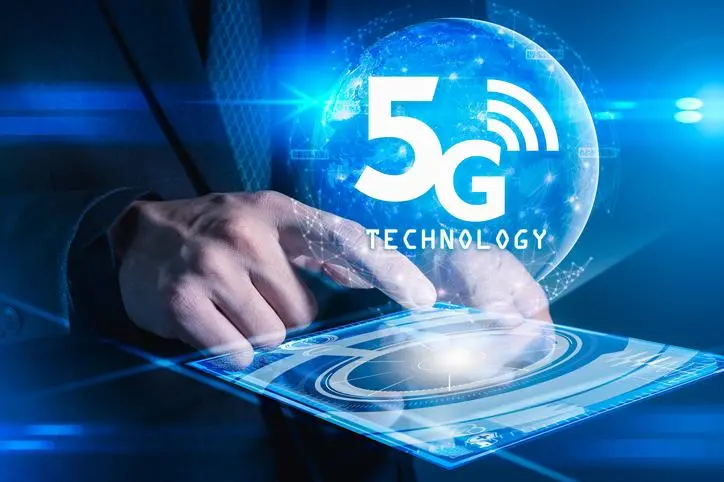PHOTO
Ericsson and King Abdullah University of Science & Technology (KAUST) have announced an initial three-year research and development (R&D) partnership focused on three research projects aimed at advancing telecommunication networks with cutting edge technologies.
Research will focus on next generations of 5G and 6G including: machine learning for frequency-selective wireless channels, Terahertz and free-space optical communications and transparent and flexible intelligent surfaces, a statement said.
The partnership aims to understand the key features and requirements of next-generation communication systems, it said.
With current optimization algorithms often entailing considerable computational complexity and processing overhead, Ericsson and KAUST will utilise machine learning (ML) for frequency-selective wireless channels, with the aim of using deep learning to solve channel estimation and resource allocation problems for massive multiple-input multiple-output (MIMO) systems.
Moreover, as future communication networks will have more emphasis on high data rates, low latency, and high security, Ericsson and KAUST will look into transparent and flexible intelligent surfaces for 5G and beyond enhanced communication, it said.
The partnership will also focus on 6G capabilities moving to higher frequencies such as Terahertz (THz) for higher data rates. In particular, Ericsson and KAUST researchers will study backup solutions for THz communications to guarantee uninterrupted high-rate backhaul in 6G dense networks.
Professor Donal Bradley, Vice President for Research at King Abdullah University of Science & Technology, said: “We are excited to collaborate with Ericsson to develop novel architectures for future communication networks. As the demand for enhanced communications continues to expand globally, innovative technologies are increasingly needed to solve the major challenges of 5G and future 6G networks. KAUST faculty and facilities offer an empowering environment for this cutting-edge research partnership and we look forward to working closely with colleagues from Ericsson to address the key challenges.”
With Saudi Arabia’s Vision 2030 having ambitious communication technology goals, the partnership between Ericsson and KAUST will study and envisage the characteristics of the next generation of 6G communication systems and provide future-proof, high-quality networks and solutions that will prove vital to the country in its realization of Vision 2030.
This agreement is a by-product of stc’s Rawafed program’s vision to enable local content while contributing to the Kingdom’s ICT sector.
Eng. Emad Alaoudah, Procurement and Support Services Vice President at stc, added: ”Our partners and institutions play an important role in creating world-class networks for now and the future with a key role in empowering Saudi capabilities and devolopment of local high-tech industry. Collaboration is a critical part of this process and this agreement is an example of partnerships that can support Saudi Vision 2030’s digital transformation mandate.”
KAUST and Ericsson believe that the research output will vastly contribute to the development of next-generation 5G and 6G networks. The results of this partnership will also contribute to the ICT research ecosystem and will be published in top-tier journals. Additionally, the exchange of students and researchers between KAUST and the Ericsson Research, Sweden, will allow for an enhanced transfer of knowledge, education and training.
Magnus Frodigh, Vice President & Head of Ericsson Research at Ericsson, says: “We are delighted to partner with KAUST as we believe an ecosystem of strong collaborative partnerships is important in enhancing communications networks. Our partnership with KAUST is part of our aspiration to encourage regional innovation by funding local research projects. By working together on fundamental research areas, our partnership with KAUST will help develop and grow the ICT sector of the Kingdom of Saudi Arabia and also help us meet the demands and opportunities of the 6G era.”
Ericsson and KAUST’s research will be a key enabler to government-sponsored digital initiatives aimed at promoting technological innovation throughout the country. It will also lay the groundwork for research into the future of communication helping the Kingdom to become an engine of innovation and creativity, the statement said. - TradeArabia News Service
Copyright 2021 Al Hilal Publishing and Marketing Group Provided by SyndiGate Media Inc. (Syndigate.info).
Disclaimer: The content of this article is syndicated or provided to this website from an external third party provider. We are not responsible for, and do not control, such external websites, entities, applications or media publishers. The body of the text is provided on an “as is” and “as available” basis and has not been edited in any way. Neither we nor our affiliates guarantee the accuracy of or endorse the views or opinions expressed in this article. Read our full disclaimer policy here.





















